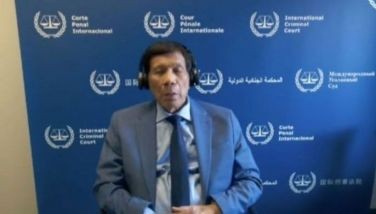Xi Jinping

At the close of the National Congress of the Communist Party of China (CPC) last week, leadership of the world’s most populous nation will now be transferred to a new generation.
The process that happened last week was, by far, the most orderly transition to a new leadership group since the Party took power in 1949. There was hardly any factional maneuvering detected, no effort to pit the army against the party and no attempt to mobilize the youth brigades to favor one faction against the other as we saw in the destructive Cultural Revolution during the sixties.
Although meetings of the National Congress of the CPC are highly choreographed events, the last meeting convinces many the once-a-decade change of leadership in China is now soundly institutionalized. The ruling party appears to have fully evolved a mechanism that at once allows changes to happen and yet maintain the continuity seen essential this populous, complex and diverse nation from breaking up and plunging into chaos.
Despite its name and its ideological roots, the CPC now sees itself principally as the vehicle for Chinese nationalism to be expressed and as guarantor of the stability of this large nation that was once an empire. It inherits the mantle of the ancient dynasties, although today the party must win day-to-day legitimacy like any other modern nation state. It must deliver prosperity and security to its people.
All eyes are now on Xi Jinping.
Elected by the party congress to head the CPC, he will then be elected by the People’s Assembly next March to be China’s president. He replaces Hu Jintao who, in an unprecedented move, simultaneously gives of his chairmanship of the powerful party military commission.
Xi, therefore, will have uncontested authority. That could be a burden. He is now expected to act quickly and decisively on the many urgent problems facing China just as Barack Obama plunges headlong to avert the US falling into a fiscal cliff immediately after winning reelection. Both of them do not have the luxury of time.
Both of them face intractable problems.
In his first speech after his election as party secretary general, Xi significantly departed from the usual party rhetoric and spoke without a prepared text. He showed concern for the demands of ordinary Chinese for a better quality of life.
The change in tone did not go unnoticed.
China will no longer be the hyperventilating economy it was for the past three decades. Its more moderate growth will match those of her most dynamic neighbors. The Chinese labor force is aging. Social security will become a major fiscal issue down the road.
Low cost manufacturing jobs will begin migrating out of China. The environmental destruction wrought by decades of reckless growth will have to be repaired. The sharp inequalities produced by gung-ho economic expansion will now have to be addressed.
The emergence to the fore of social welfare issues will be magnified by the proliferation of social media. They can no longer be isolated, localized and suppressed. The Chinese state must now become more responsive to the concerns of ordinary citizens. The party can no longer be an imperious presence in the lives of ordinary Chinese.
In addition, China cannot expect to continuously grow on the back of an export juggernaut. Its main markets will be in decline for a long time. Today, China must boost domestic consumption to keep its manufactures viable.
This means building a smarter labor force and a larger middle class. This means closing the yawning gap in incomes. This means building a better informed and more articulate citizenry.
China’s government is remarkable for grasping early enough the task of being an enabler in wealth creation. This is the reason the country developed so quickly and so dramatically. In three decades, China lifted 500 million out of poverty.
There is, for instance, a ministerial-level agency focused solely on helping overseas Chinese start up business ventures in China. Bureaucrats hand-hold investors instead of acting like gatekeepers. No wonder China has been taking the lion’s share of foreign direct investments.
The next decade, Xi’s decade, will have to be one of delicate but irreversible rebalancing.
The economy can no longer be driven by the muscle of mass production alone. It must move into a knowledge-driven economy — although that means the restrictions on information flows no in place will be anachronistic.
The wealth of the coastal cities can no longer be at the expense of the poor interior provinces. Government needs to intervene to bring investments and economic opportunities to the interior. That will complete the historic task of poverty alleviation in China.
From an economic brute that relied on cheap inputs, China must now evolve a smart economy. This is the Singapore model writ large. The path requires massive state investments in research and development.
We can no longer speak of “freeing up the forces of production” in the way this was understood in the period of industrial revolution. The new economy is driven by knowledge more than anything else. To lead in the new century, China needs to free up the flow of knowledge.
It is on this particular aspect of what needs to be done that the CPC might be most awkward. For years, the party so conveniently operated on the same paradigm of imperial patrimonialism that was the basis for building the nation in the first place. Today, in order to keep the nation, a paradigm shift in rule needs pushing further.
- Latest
- Trending


























